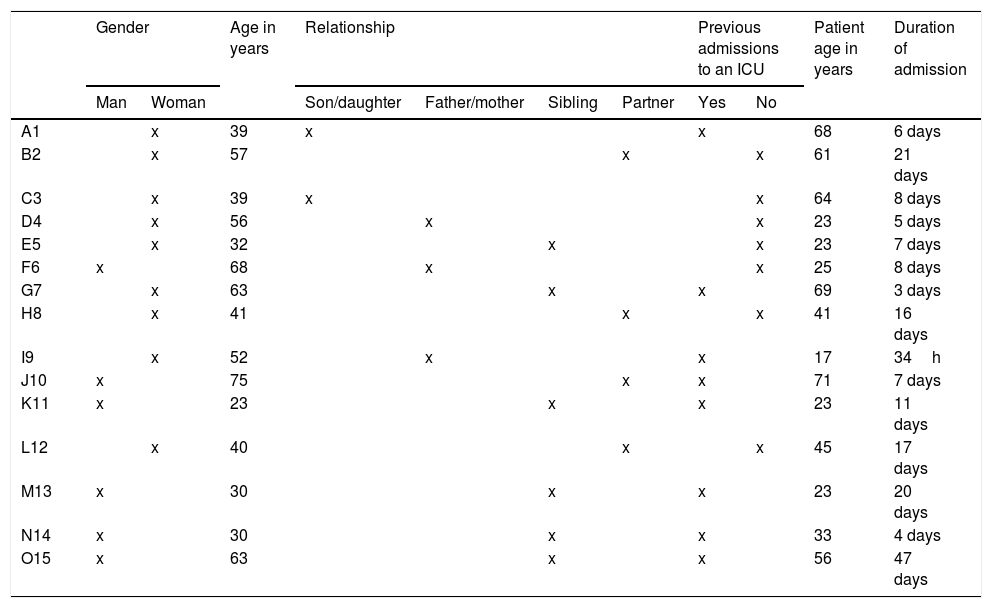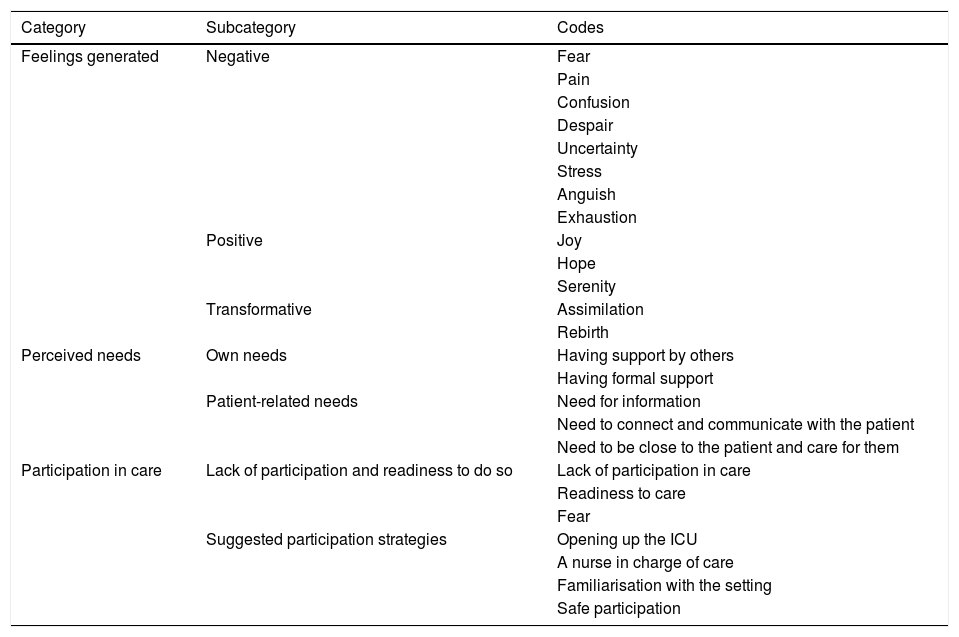The continuous and technical assistance that the critical patient requires sometimes produces a barrier with the family, generating the alteration of their needs. Family involvement is beneficial to both the family and the patient.
ObjectiveI) Knowing the feelings and needs of the patients’ relative admitted to an ICU of a third level hospital in Catalonia and II) to study the participation strategies proposed by the relatives.
MethodsPhenomenological qualitative study. The sample population selected was the patients’ relatives admitted to an UCI of a 3rd level Catalan hospital from May 2017 to February 2018. The sampling was intentional, considering different typologies to guarantee the diversity of the discourse. Semi-structured interviews were conducted, analyzed thematically. The rigor criteria of Guba and Lincoln were applied.
Results15 relatives were interviewed. The participants express negative, positive and transformative feelings. Psychological assistance, having more information and collaborating in the care of your family member are some of the expressed needs. Among the strategies proposed in the absence of care participation is the increase in family hours in the ICU and the support of a nurse educator care.
ConclusionsIt is necessary to reorient the personnel practice incorporating strategies that further integrate the family in the daily care of the critically ill patient. Helping the family, prioritizing their needs and guiding them in learning is basic and part of the professional care.
La asistencia continua y tecnificada que requiere el paciente crítico produce, en ocasiones, una barrera con la familia generando una alteración de sus necesidades. La participación familiar resulta beneficiosa tanto para la familia como para el paciente.
Objetivo1) Conocer los sentimientos y las necesidades de los familiares de pacientes ingresados en una UCI de un hospital de tercer nivel de Cataluña y 2) conocer las estrategias de participación que proponen los familiares.
MétodosCualitativo fenomenológico. La población de estudio fueron familiares de pacientes ingresados en una UCI de un hospital de tercer nivel catalán entre mayo de 2017 y febrero de 2018. El muestreo fue intencional, considerando diferentes tipologías para garantizar la diversidad del discurso. Se realizaron entrevistas semiestructuradas, analizadas temáticamente. Se aplicaron los criterios de rigor de Guba y Lincoln.
ResultadosSe entrevistaron 15 familiares. Los participantes manifestaron sentimientos negativos, positivos y transformadores. La asistencia psicológica, contar con más información y colaborar en los cuidados son algunas de las necesidades manifestadas. Entre las estrategias planteadas ante la falta de participación aparece el aumento de horas de la familia en la UCI y el apoyo de una enfermera educadora del cuidado.
ConclusionesEs necesario reorientar las prácticas profesionales incorporando estrategias que integren aún más a la familia en el cuidado diario del paciente crítico. Ayudar a la familia, priorizando en sus necesidades y guiarla en el aprendizaje es básico y forma parte del cuidado profesional.








